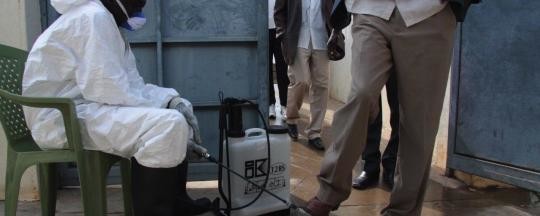Two hundred and thirty three cases of Cholera have now been recorded in Juba and five people have died from the disease, MSF said in a statement.
Cholera is an infection caused by ingestion of food or water contaminated with a bacterium. It has a short incubation period, from less than one day to five days. Symptoms include dehydration, vomiting, and watery diarrhea.
Patients who have these conditions should report to the nearest health facility, or Juba Teaching Hospital. To avoid spread of the disease, proper hand sanitation and use of chlorinated water is advised.
On July 27th, MSF said that it planned to begin a vaccination campaign for 4,000 people who have a higher risk of Cholera.
“We want to make sure people know that if they have watery diarrhea more than three times in one day then they may have Cholera,” said Anja Wolz, MSF Emergency Coordinator. “With early diagnosis and treatment, people have a very good chance of survival. Treatment starts at home – people should drink Oral Rehydration Solution and then seek medical care as quickly as possible.”
MSF said that people who think they have Cholera should go to their nearest Oral Rehydration Points (ORPs), which have been set up at the following hospitals and health centers; Gurei, Kator, Lologo, Gumbo, Munuki, Gorom, Morobo, Mahad, Khor Williams, Al Geida, Al Sabbah Children’s Hospital and Juba Teaching Hospital. The points are open between 7am and 6pm every day.
“If people are very ill, or become unwell at night when the ORPs are closed, they can come to the Juba Teaching Hospital for treatment” MSF said.
“People can help to protect their families by making sure that the water they drink is clean and safe,” said Anja Wolz. “Other things that can help to limit the spread of Cholera include using latrines, washing hands with soap or ash, and making sure that the places where food is prepared and eaten are clean.”




